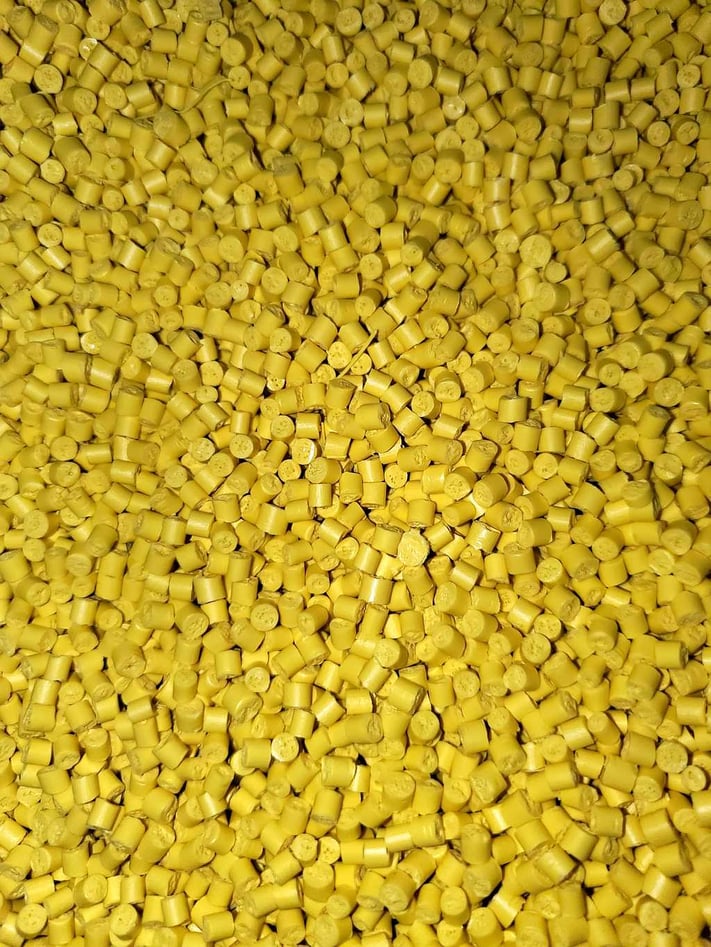
If you are new to the world of thermoplastic injection molding, it may be daunting to try and figure out which material is best suited for your project’s needs. Luckily, AIM holds sufficient expertise and knowledge to advise our clients on the suitable thermoplastic for every injection molding product. To begin, it is helpful to know there is broad categorization between commodity and engineered resins. Commodity grades are often viewed as interchangeable, whereas engineered resins may have specific performance characteristics. We have listed ten common injection molding thermoplastics and their advantages below; for more detailed guidance, get in touch with our team of experts!
Common Injection Molding Thermoplastics: Polypropylene
The first in the commodity grades and one of the more common thermoplastics for injection molding is Polypropylene, also known as PP. Because PP is a low-cost material and easily attainable, it proves to be an ideal choice in many instances that don’t require a particular strength or rigid structure. In fact, PP’s flexibility and pliability can make it a good choice for parts that move or flex. Apart from availability and cost-efficiency, key material-property advantages of Polypropylene include compatibility with many food and medical applications.
Common Injection Molding Thermoplastics: Polyethylene
The second in the commodity grades is Polyethylene, one of the most commonly used of all thermoplastics. Not only is this thermoplastic highly resistant to chemicals and bacteria, making it perfect for many medical-grade and food-grade products, it can hold up against high-impact conditions. Polyethylene is inexpensive and is commonly recycled in most recycling streams.
Common Injection Molding Thermoplastics: ABS
ABS is one of the more common and available examples of engineered resins. ABS has strong impact resistance and high tensile strength. With these characteristics, it is commonly used in electronic enclosures. It flows well and is easily colorable. Given its popularity, ABS is one of the lower cost engineered resins.
Common Injection Molding Thermoplastics: Polycarbonate
One of the other very common engineered thermoplastic resin grades is polycarbonate. Polycarbonate material provides high-quality surface finishes with off-the-chart impact resistance across a wide temperature range. However, some chemicals do not interact well with it.
Common Injection Molding Thermoplastics: Copolyester
Specific types of copolyester have been developed to offer similar characteristics to Polycarbonate, but without BPA. Copolyester has been a growing market for those desiring a clear, impact-resistant, and BPA-free product.
Common Injection Molding Thermoplastics: Nylon
Nylon is highly resistant to chemicals because of its semi-crystalline structure. Nylon can have excellent tensile strength, but it is a higher shrink material. This means that the dimensional stability, in some cases, may be harder to control. Nylon can be a highly flexible product by itself or mixed with fillers, such as fiberglass, to increase stiffness.
Common Injection Molding Thermoplastics: Acetal
Acetal is a frequently requested thermoplastic for injection molding projects because it is easily available in machinable form for prototyping. With high levels of creep resistance, chemical resistance, and good tensile strength, this material is ideal for a wide range of industries, from the electronic sector to the medical industry. Good wear resistance makes it a good choice for applications with moving parts.
Common Injection Molding Thermoplastics: PPS
PPS, or polyphenylene sulfide, boasts a great flame rating and excellent heat resistance. This thermoplastic is also known for high overall strength and dimensional stability, useful for injection molding projects such as chemical pumps and electrical housings.
Common Injection Molding Thermoplastics: PBT
While many thermoplastics provide electrical properties, PBT can be great for applications that have insulation needs or impact resistance as well. Its semi-crystalline structure gives it good resistance to a wide range of chemicals.
Common Injection Molding Thermoplastics: PC/ABS
Like the impact resistance of Polycarbonate but need the chemical resistance of ABS? Blend the two and you get PC/ABS, which is commonly used in housings in the medical world, where aggressive cleaning agents would weaken many plastics. PC/ABS is a widely available engineered thermoplastic resin.

 SINCE 1993 MADE IN USA
SINCE 1993 MADE IN USA 

